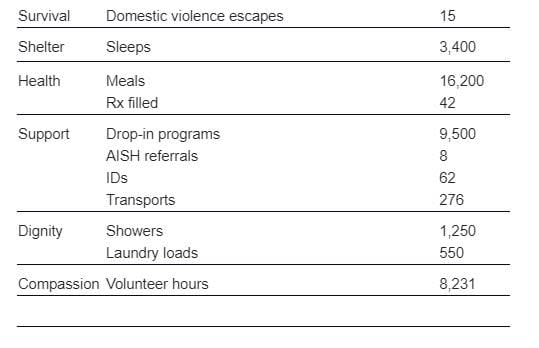Leduc, Alta., city council votes to support creation of emergency cold-weather homeless shelter
After some contentious debate, city council in Leduc, Alta., passed a motion this week to support the creation of an overnight emergency shelter for use during periods of extreme cold weather.
An estimated 100 people are currently experiencing homelessness in Leduc. The only homeless shelter in the city 35 kilometres south of Edmonton closed in May.
Coun. Ryan Pollard put forward a motion at a council meeting Monday, calling for city administration to initiate planning and facility requirements to provide overnight emergency shelter services that would operate during severe weather between Nov. 1, 2024, and April 30, 2025.
The services would include modular accommodation units located behind the Protective Services building, which houses the Leduc RCMP detachment and a fire hall.
Pollard's motion passed in a 4-3 vote.
Administration will now start to look for a contract service provider to operate the program at a cost of up to $308,000. The money is to come from the city's operating reserve fund.
Mayor Bob Young, who voted against the motion, said instead of opening a new emergency shelter, Leduc should instead direct people experiencing homelessness to the province's new navigation centre in Edmonton.
"I'm not voting against this because I want to see somebody freezing in the streets," Young told council. "I want to see people get the help and the support that they need."
But he said very few municipalities are opening shelters because of the costs involved.
"A homeless shelter, all it does is it enables people to stay homeless, it doesn't help them," he said.
Coun. Glen Finstad also voted against Pollard's motion after saying that he hoped common sense would prevail.
"We need to stay in our lane. The province has the resources set up to handle it," Finstad said.
Creating a new shelter may make people feel like they are doing a good thing, but wouldn't "solve the problem" of homelessness, he said.
"We're not experts at it. We don't have the resources, we don't have the manpower."
Shelter shut down in May
Shannon Dalke, board chair for the Leduc Hub Association, said some of the arguments she heard against Pollard's motion to create an emergency shelter were upsetting.
The Hub ran the city's only homeless shelter, but shut it down on May 1 after being unable to find a suitable new location that aligned with municipal zoning rules.
Because the association doesn't have a location lease, it can't get a municipal operating permit. That prohibits the Hub from accessing operational funding grants offered by the Alberta government.
Many community members experiencing homelessness have told Dalke they feel lost since the shelter closed, she said.
"I fear that we've abandoned them as a group or as a community, and my hope is to let them know, as well as our community, that the Hub is still working diligently to come up with a greater plan and to help out in whatever way we can."
According to data from the Hub, about 100 people in Leduc are currently experiencing homelessness, and there was a 60 per cent increase in the homeless population between 2022 and 2023.

Pollard said data shows that the number of encampments in the city has increased.
"If people don't have a place to live, or they don't have a place to shelter for the night, they're doing the best they can with whatever resources they have, whether that's a campfire or a stove or a tent," he said.
He said he put forward the motion in the hope of providing timely assistance to those most vulnerable.
"We can't just wash our hands and say, 'Well, gee, that's too bad for them. Sorry. You have to die because you are mentally ill or you've got an addiction ... you're the author of your own demise,'" Pollard said.
Taking that approach would be "unconscionable," he said. The shelter proposal is the most workable option, he said.
Navigation centre 'intended to serve Edmonton'
At the Edmonton navigation centre, people are offered help with housing, financial supports, health care, addiction treatment and mental health services. There is storage for belongings and residents are able to keep their pets with them.
The $13-million shelter, originally intended to be temporary, opened as the Edmonton Police Service took down homeless encampments in a mass sweep earlier this year during winter.
The shelter has since become permanent. Jason Nixon, Alberta's minister of seniors, community and social services, told media in March that more than 700 people have accessed the centre since mid-January.
CBC requested comment from the Ministry of Seniors, Community and Social Services.
Nixon's press secretary, Alexandru Cioban, said anyone, regardless of where they are from, can access the navigation centre in Edmonton.
"However, the navigation centre is intended to serve Edmonton and is typically operating near capacity, seeing between 45 and 50 people daily," Cioban said in a statement.
"We are not encouraging organizations outside of Edmonton to bring clients to the centre as this would create additional challenges, including getting them back to Leduc or their home communities."
Cioban said the province is looking at "developing a rural approach."

 Yahoo News
Yahoo News 